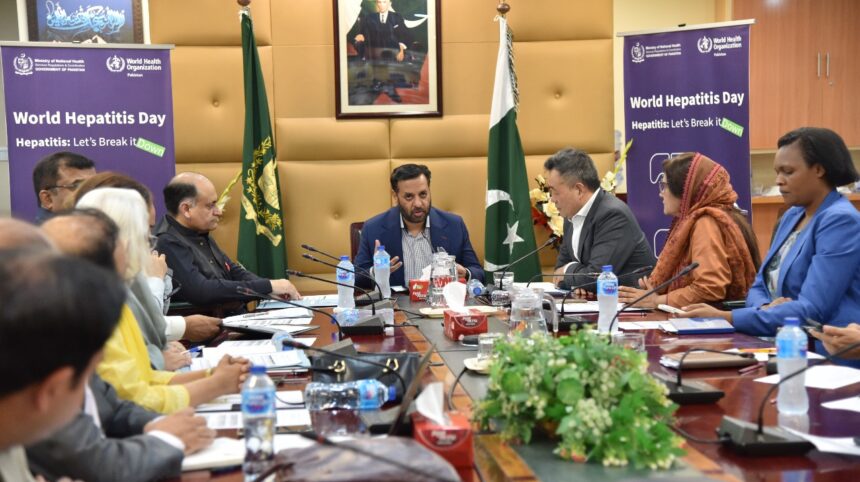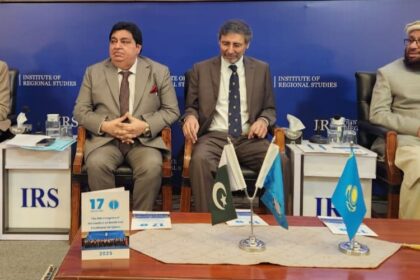**Pakistan and WHO Intensify Fight Against Hepatitis C to Prevent Over 850,000 Deaths**
Pakistan’s Ministry of Health, in partnership with the World Health Organization (WHO) and key stakeholders, has pledged to escalate efforts to eliminate hepatitis C, aiming to avert 850,000 deaths and 1.1 million new infections by 2050. This ambitious initiative, being implemented under the Prime Minister’s National Programme for the Elimination of Hepatitis C, is also expected to yield significant economic benefits, with estimated savings of 3.3 billion Pakistani rupees (PKR) over the next five years.
At a high-level event commemorating World Hepatitis Day, Federal Health Minister Syed Mustafa Kamal stressed the urgent need for action. Addressing national and international experts, the minister described the campaign as not only a duty, but a mission to protect Pakistan’s future generations. “Millions of people are already affected, and many more are getting affected every single day. We must act now to save our people,” he said, calling on all stakeholders to join hands in this nationwide effort.
The event, attended by WHO Representative in Pakistan Dr. Dapeng Luo, highlighted that every dollar invested in hepatitis C prevention generates an economic return of eleven dollars. According to data shared during the meeting, the comprehensive implementation of the Prime Minister’s Programme could save 150,000 lives and prevent 210,000 new infections by 2030 alone. Moreover, the programme should avert 90,000 cases of liver cancer and 71,000 cases of cirrhosis, while reducing treatment and hospitalization costs by a combined total of over PKR 3.3 billion within five years.
Dr. Dapeng Luo emphasized the urgency of the crisis, noting, “Every 30 seconds someone dies from hepatitis-related severe liver disease or liver cancer. Detecting and treating hepatitis is essential, but prevention is the key to end the disease.” He reaffirmed WHO’s commitment to supporting Pakistan’s efforts, adapting global best practices for the country’s unique needs.
Pakistan faces the world’s largest burden of hepatitis C, accounting for 10 million of the estimated 50 million cases worldwide. Every year, approximately 110,000 Pakistanis are newly infected. Unsafe medical injections, including improper blood transfusions, are responsible for 62% of new cases, while injection drug use accounts for 38%.
Under the campaign theme, “Let’s break it down,” WHO is advocating for the simplification, scaling up, and integration of hepatitis services into national health systems. Key strategies include vaccination, safe injection practices, harm reduction, and especially wider access to testing and treatment. The overarching goal is to eliminate hepatitis as a public health threat by 2030.
WHO has reiterated its full support for Pakistan’s National Programme, which targets testing 50% of the eligible population—totalling 82.5 million people aged 12 years and above—and treating 5 million individuals by 2027. The government and its partners remain committed to achieving these ambitious targets and safeguarding the nation’s health and economic future.











